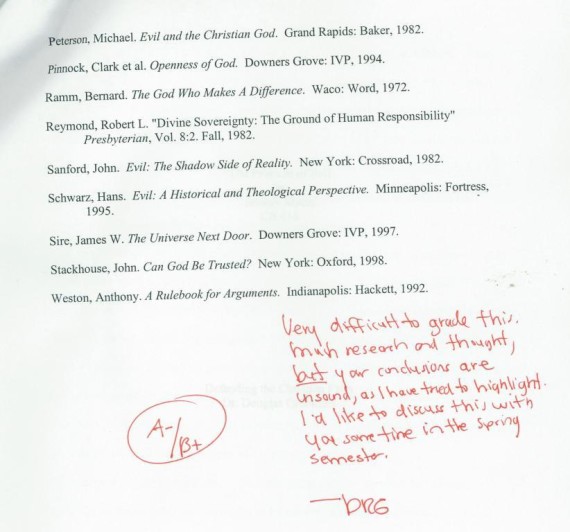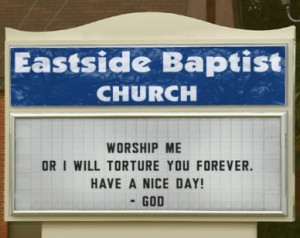 A reader recently asked me this question: “What if you incorrectly identify something as demonic?” While I will answer that question, I think the fear behind it is something related to the blasphemy against the Holy Spirit. The real question that was probably being asked was this: “What is the sin against the Holy Spirit?”
A reader recently asked me this question: “What if you incorrectly identify something as demonic?” While I will answer that question, I think the fear behind it is something related to the blasphemy against the Holy Spirit. The real question that was probably being asked was this: “What is the sin against the Holy Spirit?”
The reason I say this is because there is an event in the life of Jesus that is often used by some power-hungry and control-freak pastors to beat and cajole the people in their church into submission, to quell all dissension, and to quiet all objections. These pastors usually accuse people of committing a sin against the Holy Spirit (or blasphemy against the Spirit) if they challenge or question the pastor, and especially if someone accuses the pastor of doing something demonic.
Let me just say this: Some of the most demonic things that have ever been done in the history of the world have been done in the name of Jesus Christ. In fact, I would go further and say that if one person does something evil, and another person does the exact same thing but does it in the name of Jesus Christ, the second action is way more demonic and evil than the first.
Doing evil is bad enough, but there is nothing worse than doing evil in the name of God.
Anyway, back to the point…
Matthew 12 and the Sin Against the Holy Spirit
The event from the life of Jesus that some pastors and church leaders refer to is found in Matthew 12. Jesus performs some miracles and the religious leaders accuse Jesus of operating under the power of Beelzebub (aka, Satan). In turn, Jesus accuses these religious leaders of being close to committing a sin against the Holy Spirit, or blasphemy against the Holy Spirit.
So when one Christian accuses a church leader of doing something evil or wrong, the pastor often feels justified in retorting the same way Jesus did, and accuses his accusers of committing a sin against the Holy Spirit. They teach that if someone is doing something by the power of the Holy Spirit, and someone else says they are doing it by the power of the devil, that this is a sin against the Holy Spirit, and those who commit this sin will never be forgiven.
You see how this works? Some pastors use Matthew 12 to make sure that no one ever challenge or questions their ideas, teaching, actions, or motives. For they are “God’s anointed” and if you do question them, then maybe you are committing the sin against the Holy Spirit and will end up damned for all eternity as a result.
Hmmm…. is this true? Let’s consider the specific situations where this occurs a little more closely.
There are some churches out there that have times in their weekly services where they engage in practices like speaking in tongues, prophetic utterances, and miraculous healing. A second group of leaders and churches (which do not practice these things) often accuse the first group of doing these miracles in the power of the devil rather than in the power of God.






 I can already hear what the television pastors and radio preachers are going to say when the next big catastrophe hits America:
I can already hear what the television pastors and radio preachers are going to say when the next big catastrophe hits America:


 In response to a great question from
In response to a great question from 
 First, note that both texts seem to refer to something that happens to people after they die. I don’t know what sorts of “punishment” God might have in store for people after death, but again, using Jesus as the guiding principle, I highly doubt that God is going to torture people for all eternity by burning them in fire. I do not believe in annihilationism, nor do I believe in universalism, but I also do not believe in eternal conscious torment.
First, note that both texts seem to refer to something that happens to people after they die. I don’t know what sorts of “punishment” God might have in store for people after death, but again, using Jesus as the guiding principle, I highly doubt that God is going to torture people for all eternity by burning them in fire. I do not believe in annihilationism, nor do I believe in universalism, but I also do not believe in eternal conscious torment.